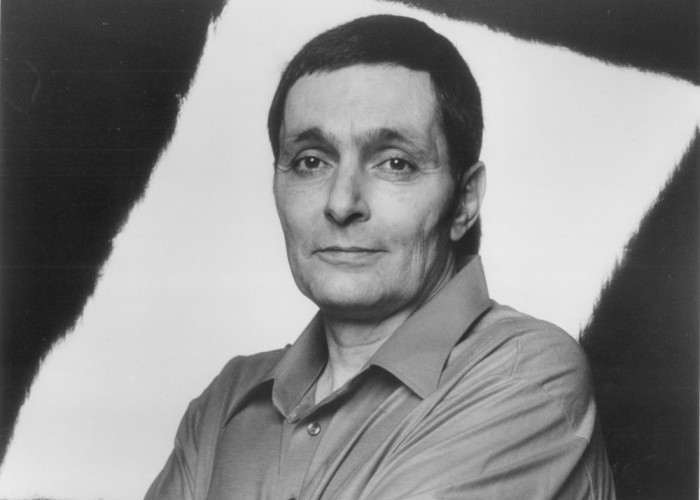Jan 13, 2026 2:09 PM
More Trump-Kennedy Center Cancellations
The fallout from the renaming of the John F. Kennedy Center for the Performing Arts to include President Donald…

Art Pepper (1925–1982)
(Photo: DownBeat Archives)For many jazz fans, the high point of Art Pepper’s late-’70s comeback was a four-night stand at New York’s Village Vanguard that was recorded for Contemporary Records and released, at first, as four albums, and later as a nine-CD set. These rangy, sometimes raucous performances (with pianist George Cables, bassist George Mraz and drummer Elvin Jones) captured the questing, Coltrane-inflected sound of Pepper’s later years, while still reflecting the lyric, bop-schooled virtuosity of his early work.
But like most great moments in recorded jazz, those albums didn’t just happen. Those sessions were the culmination of what was, unbelievably, Pepper’s very first tour as a bandleader, and the whole thing likely never would have happened had it not been for the persuasive charm of Artists House Records chief John Snyder. According to Laurie Pepper, the saxophonist’s widow, it was Snyder who suggested that he play the Vanguard (also a first), convinced club owners outside of New York to book Pepper and—after a return engagement at the Vanguard was requested—pitched making a live album there (although Lester Koenig and Contemporary, who had Pepper under contract, ultimately made the recording).
In that sense, Unreleased Art Pepper, Vol. 10: Bourbon Street–Toronto, June 16, 1977 (Widow’s Taste; 60:34/50:47/60:27 ★★★★) is a dry run for those sessions. Recorded six weeks before the Vanguard shows, it finds Pepper in front of a different rhythm section, but obtaining much the same results.
The three-CD set starts, impressively, with a semi-rubato introduction to Joe Gordon’s “A Song For Richard,” during which Pepper invokes the mood of A Love Supreme-era Coltrane without actually copping licks. After almost three minutes of mood setting, the bandleader states the theme and spends another four slow-building minutes working out the melodic and dramatic possibilities within the tune. It’s breathtaking.
Listening to how easily the band follows Pepper’s lead, it’s hard to believe the group hadn’t played together before that gig. At one point, Pepper warmly compliments Bernie Senensky, saying, “There’s a certain rapport between a horn player and a piano player that, if it isn’t there, nothing can happen.”
Just as crucial, though, are the bassists, 17-year-old Dave Pilch, who was the mainstay for Pepper’s Toronto gig, and 37-year-old Gene Perla, who sat in as preparation for accompanying him at the initial Vanguard show. Part of their dominance has to do with the way their basses were amplified, using a bridge pickup and a presumably powerful amp. But mostly, it’s because each player moved freely between straight timekeeping and melodic, contrapuntal lines, a strategy that let Pepper move easily between a hard-driving bop approach and a freer, more harmonically daring line.
To make an easy comparison, when the group launches into a medium-tempo reading of “All The Things You Are,” Perla maintains a straightahead walking line, sticking reasonably close to the roots. As Pepper pushes the harmonic boundaries, Perla doesn’t merely follow, but prods, playing extensions that propel the saxophonist into evermore inventive extrapolations. But when they launch into an uptempo run through “I’ll Remember April,” Perla seems to intuit where Pepper wants to stretch, and where he wants a more straightforward grounding.
Just as crucial, but in some ways more unsung, is drummer Terry Clarke, who manages to be almost imperceptible on the more balladic moments but provides robust rhythmic support on uptempo numbers without crowding Pepper out. Some of this has to do with Clarke’s uncanny sense of swing, but also reflects the way he listened to the rest of the group and tempered his dynamics, so that the drumming delivered maximum drive with minimal intrusion.
Toronto jazz DJ Ted O’Reilly recorded this show for broadcast on CJRT-FM, the predecessor of the city’s current JAZZ-FM. Mono air-check recordings of some performances previously have been bootlegged, but Laurie Pepper’s lovingly restored set not only provides a stereo mix, but augments O’Reilly’s takes with her own stereo cassette recordings. It’s not quite the same as having been there, but it’s close enough to give the average listener the sense of being on a wave that’s just about to break. DB

Belá Fleck during an interview with Fredrika Whitfield on CNN.
Jan 13, 2026 2:09 PM
The fallout from the renaming of the John F. Kennedy Center for the Performing Arts to include President Donald…

Peplowski first came to prominence in legacy swing bands, including the final iteration of the Benny Goodman Orchestra, before beginning a solo career in the late 1980s.
Feb 3, 2026 12:10 AM
Ken Peplowski, a clarinetist and tenor saxophonist who straddled the worlds of traditional and modern jazz, died Feb. 2…

The success of Oregon’s first album, 1971’s Music Of Another Present Era, allowed Towner to establish a solo career.
Jan 19, 2026 5:02 PM
Ralph Towner, a guitarist and composer who blended multiple genres, including jazz — and throughout them all remained…

Rico’s Anti-Microbial Instrument Swab
Jan 19, 2026 2:48 PM
With this year’s NAMM Show right around the corner, we can look forward to plenty of new and innovative instruments…

Richie Beirach was particularly renowned for his approach to chromatic harmony, which he used to improvise reharmonizations of originals and standards.
Jan 27, 2026 11:19 AM
Richie Beirach, a pianist and composer who channeled a knowledge of modern classical music into his jazz practice,…